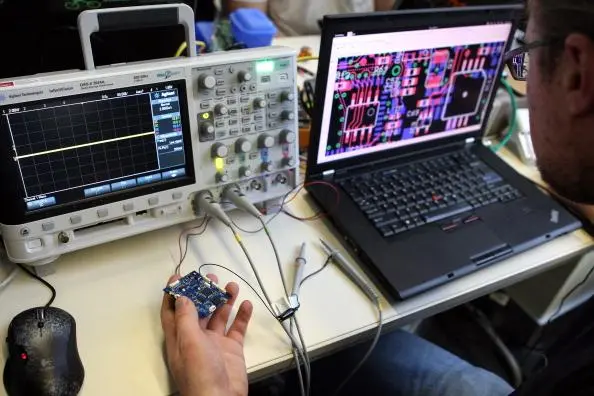PHOTO
NEW YORK - Trade barriers aren’t the only villain in town. Tensions over tariffs and pacts like the North American Free Trade Agreement have dominated recent economic headlines. But Thursday’s triple-whammy of news about cyber hacking gives justified prominence to what may be an even bigger threat to global growth and prosperity.
Cyber crime costs the world almost $600 billion annually, according to a report earlier this year by the Center for Strategic and International Studies and security-software outfit McAfee. That’s a potential hole of around 0.7 percent in global GDP, as measured by the International Monetary Fund.
Meanwhile, the IMF said in July that the emergence of a trade war could dent world output by 0.5 percent by 2020. That’s a big concern, but at under $450 billion – simply translating the total estimated shortfall into dollars – not as big a one as the annual impact of hacks and the like.
Investors and companies are aware of both risks, ranking trade-related factors and cyber threats among their top worries, according to surveys by PricewaterhouseCoopers and others. Yet tit-for-tat political rhetoric and tariffs, along with tales of dairy farmers’ personal struggles with trade barriers, understandably get more play than drier stories about the nefarious manipulation of invisible ones and zeros.
It’s relatively easy, however, to grasp the implications of Bloomberg Businessweek’s exposé of alleged Chinese government interference in the manufacture of cloud-storage hardware used by American giants like Apple and Amazon.com. It’s also possible to relate to the UK and the Netherlands going after Moscow for trying to hack a multilateral chemical-weapons-monitoring body – especially after the dramatic poisoning of a former double agent in Britain – and the U.S. Department of Justice indicting Russian military personnel for cyber intrusions affecting sports-doping watchdogs.
In a speech on Thursday, U.S. Vice President Mike Pence took aim at Beijing’s various efforts, from domestic policy to cybercrime and propaganda, to advance its interests at the expense of Washington’s. Of course, the United States and its allies also participate in cyber offensives aimed the other way. With all this publicity, though, at least investors and corporate chieftains can’t claim they weren’t warned.
CONTEXT NEWS
- Chinese spies placed computer chips inside equipment used by around 30 companies, as well as multiple U.S. government agencies, Bloomberg Businessweek reported on Oct. 4, citing 17 unnamed intelligence and company sources. That potentially gave Beijing secret access to internal networks.
- Apple and Amazon.com denied that their systems contained malicious computer chips inserted by Chinese intelligence, statements from the tech companies released separately by Bloomberg showed.
- The United States on Oct. 4 indicted seven Russian intelligence officers for conspiring to hack computers and steal data. The spies’ aim was to delegitimize international anti-doping organizations and expose officials who revealed a Russian state-sponsored athlete doping program.
- The UK and Dutch governments on Oct. 4 accused Russia of running a global campaign of cyberattacks to undermine democracies. Among these was a thwarted attempt to hack into the Organisation for the Prohibition of Chemical Weapons while it was analyzing a Russian poison used to attack a spy. EU officials said in a statement Russia’s “aggressive act demonstrated contempt for the solemn purpose” of the chemical-weapons watchdog.
(Additional reporting by Gina Chon. Editing by Antony Currie and Martin Langfield)
© Reuters News 2018





















